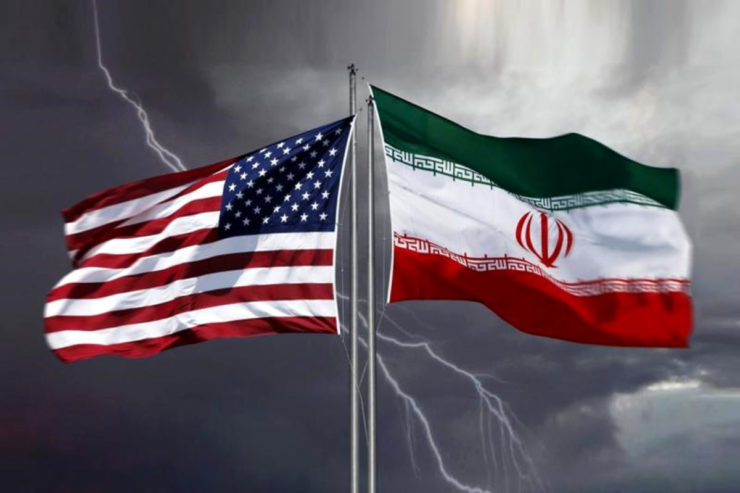
On the 26th of October, the US military carried out strikes against what it calls the Iran-backed militias operating in Syria and Iraq. This was allegedly in response to attacks on US forces in Syria and Iraq. On the 27th of October, US President Joe Biden reportedly sent a direct message to Iran’s Supreme Leader Ayatollah Khamenei, warning him of the consequences of Iranian support for the groups targeting the US forces. These clashes and strikes have a geopolitical context. Recently, Joe Biden stated that the core reason why Hamas launched a war on Israel was a concerted international attempt to jeopardise the India-Middle-East-Europe Economic Corridor. In the same frame, Biden thinks that the Iran-backed militias’ attacks on the US forces in Syria and Iraq are part of a wider Iranian attempt to start a new war in the region. But this is an illogical position that hides, more than it reveals, Washington’s actual intentions.
By now, we already know that the US has thus far consistently opposed any and all efforts to establish a complete ceasefire in Gaza. On the contrary, it continues to defend Israel’s ‘right to self-defence’, even though Washington knows very well that exercising this ‘right’ comes at the cost of thousands of innocent lives. Given this, Washington understands the consequences of such blind support very well. There is little denying that this will exacerbate the regional situation, with mass killings forcing other countries to take drastic measures. Washington, via its mindless support for Israel, is, therefore, creating a situation where a larger war becomes very much possible, if not inevitable and completely unavoidable, with devastating consequences for the whole region.
Why does the whole region matter to Washington? For the past few years, Washington’s influence in the Middle East has considerably waned. This has happened against the larger context of Chinese and Russian resurgence at the same time. The US has consistently failed to convince Saudi Arabia to increase the production of oil to bring the oil price down. Despite US efforts to the contrary, Beijing was successful in mediating a normalization between Saudi Arabia and Iran. And, despite many efforts, Washington has not been successful in making Saudi Arabia embrace The Abraham Accords.
The emerging Middle East is, thus, in a shape that does not present itself easily to Washington for manipulation. For the US, therefore, forcing this Middle East to lapse is one crucial way of preventing it from becoming a major ally of China and Russia. A military conflict with Iran, either in Syria and Iraq or in the form of a direct attack on Iran, will push back the politics of the new Middle East by decades.
While a direct war with Iran, i.e., a US attack on Iran, seems unlikely at the moment, an alternative scenario is possible. This scenario involves Hezbollah’s involvement against Israel in the Gaza war. Iranian officials have repeatedly warned that this scenario is not impossible, and that a continued spree of killings will make it inevitable. While Iran has not so far given any indication that Hezbollah is already involved, nor has Israel or even Washington accused Iran of attacking Israel via Hezbollah, both Israel and Hezbollah share a violent past, which is particularly dangerous for the prospects of a wider war in the Middle East.
But, while this is yet to happen, Washington surely sees the Middle East slipping away from its usual grip due to the war. More importantly, it is realising that peace-making in the Middle East will no longer be made-in-US. Russia and China are increasingly involved in the crisis as mediators. They also have the support of many Arab states. In the recent United Nations Security Council meeting, the UAE, otherwise a signatory of The Abraham Accords, supported the Russian draft resolution and opposed Washington’s. In a joint statement, many Middle Eastern states – Egypt, Saudi Arabia, Jordan, Bahrain, Oman, Qatar, Kuwait, and Morocco – called for an immediate and total ceasefire. Admonishing the US and its support for Israel, the statement criticised that Israel’s “right to self-defence … does not justify blatant violations of humanitarian and international law.”
The Middle East is clearly not happy with Washington and appears to be distancing itself from the US. What can Washington do to prevent – and potentially – reverse this state of affairs? Blame Iran.
By blaming Iran, the US can project many issues simultaneously. First of all, Iran – rather than Israel – becomes responsible for the Gaza war (because Iran, supported by China and Russia wanted to sabotage the said Economic corridor). Secondly, by framing Iran as the troublemaker, Washington hopes to convince the Sunni Arab states that normalization with Iran means trouble and that Shi’ite Iran cannot be trusted because of its expansionist policies and inherent ideological differences. Thirdly, because Iran has the support of China and Russia and because this ‘axis’ is causing trouble in the Middle East, the Sunni Arab states must review the extent of their engagement with Beijing and Moscow. By bringing all of these issues ‘logically’ closer, Washington hopes to reshape the Middle East’s geopolitics to its advantage.
Can Washington do this? This is a moot question. But Washington’s intentions have an extremely right-wing ally in Jerusalem, which has its domestic political compulsions. Joe Biden has his own domestic compulsions. He cannot politically afford to let this impression prevail that the US is losing under his leadership, both in the Middle East and Ukraine. This will spell disaster for his re-election bid next year.
Salman Rafi Sheikh, research-analyst of International Relations and Pakistan’s foreign and domestic affairs, exclusively for the online magazine “New Eastern Outlook”.